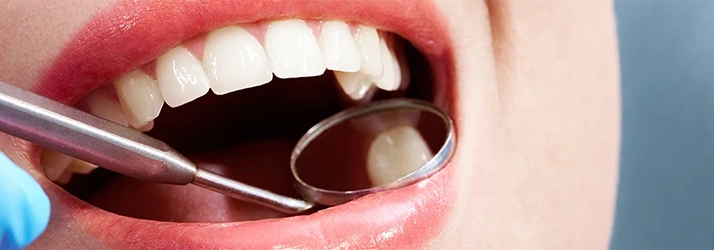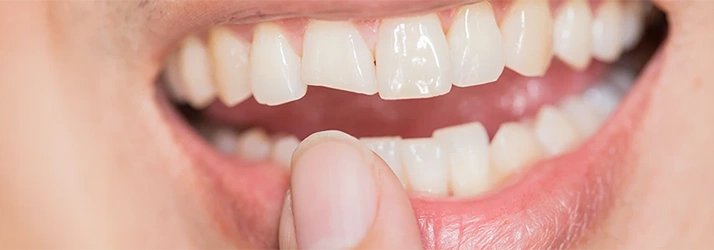Robert Scott Nance, D.D.S., M.S., P.A. Blog
Sudden Tooth Pain? Here’s What Might Be Causing It — and Why You Should Give Us a Call ASAP
Sudden Tooth Pain? Here’s What Might Be Causing It – and Why You Should Give Us a Call ASAP Tooth pain and sensitivity are common oral health issues. In fact, one survey reported that 22% of adults in the United States had experienced tooth, gum, or jaw pain within the last six months. When you…
Dental Trauma Has Darkened My Front Tooth: Can Internal Bleaching Correct the Discoloration?
Dental Trauma Has Darkened My Front Tooth: Can Internal Bleaching Correct the Discoloration? Dental trauma often stems from a fall or sports injury. A traumatic dental injury can be minor, such as a chipped tooth, or it can be major, such as severe tooth cracks or fractures. Whatever the dental injury might be, it always…
What Teeth Grinding Does to Your Smile
What Teeth Grinding Does to Your Smile Bruxism is a dental disorder that happens when you clench or grind your teeth while not chewing and eating. Typically, when you have bruxism, you’re unaware that you’re grinding your teeth, either because you’re sleeping or you’re anxious. In many cases, bruxism is short-lived and can be treated…
5 Ways to Boost Your Recovery After Apexification
5 Ways to Boost Your Recovery After Apexification When a new tooth emerges through the gums, it’s actually not a fully formed tooth yet. The top portion that you can see (crown) is complete and perfectly functional, and while the bottom two-thirds that lies underneath the surface of your gums (the root) is also fully…
4 Steps to Take If You Have a Cracked Tooth
4 Steps to Take If You Have a Cracked Tooth Enamel – the outer protective layer of your teeth – is the strongest substance in your entire body, trumping even the strength of your bones. However, even strong things have limits, and your teeth can still crack and chip. A cracked tooth can happen suddenly…
What Happens if a Root Canal Becomes Reinfected?
What Happens if a Root Canal Becomes Reinfected? To protect your oral health and make your teeth last a lifetime, you need to be diligent about practicing healthy habits, such as brushing and flossing regularly and visiting your dentist twice yearly. However, if you neglect your oral health, you increase your risk of developing infections…







